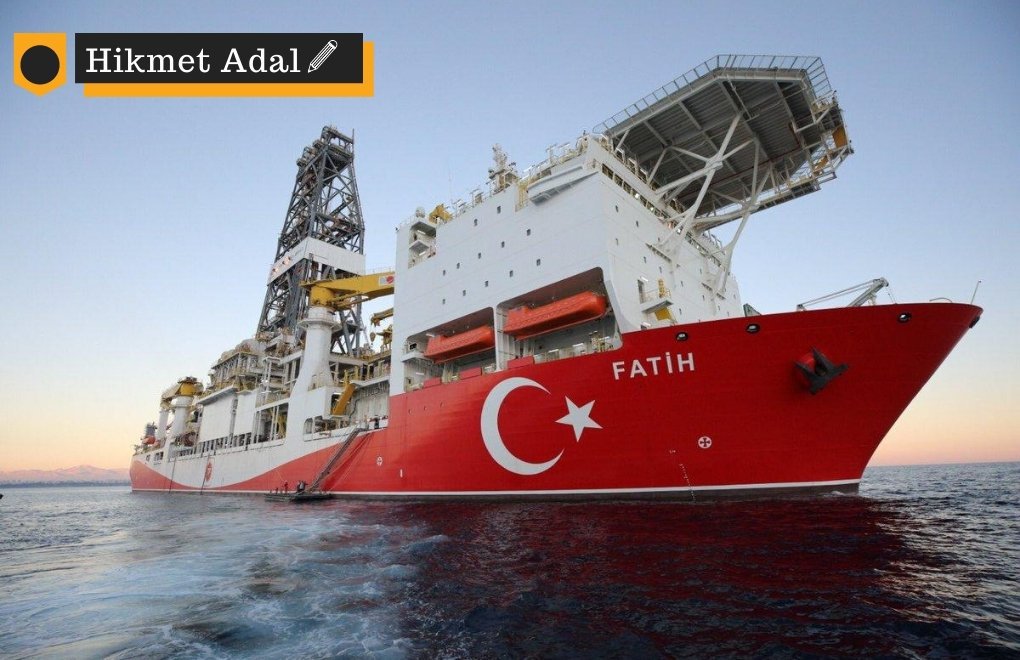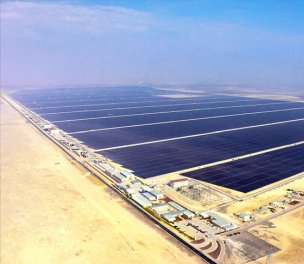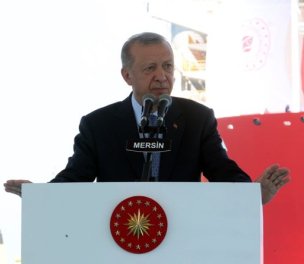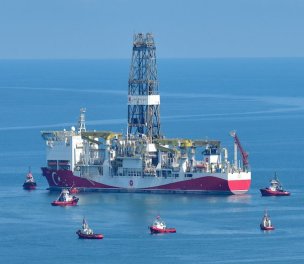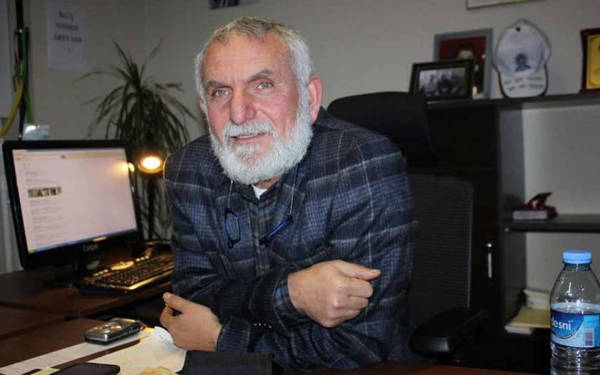Click to read the article in Turkish
The value of the natural reserve that Turkey discovered last week in the Black Sea is around 60 to 70 billion dollars, according to Prof. Volkan Ediger, the Director of Kadir Has University's Center for Energy Sustainable Development
There are many cost items for extracting natural gas, including well drilling, establishing a platform, laying pipelines and setting up a purification facility.
"All the gas can't be extracted at the same time"
While the discovered gas can meet Turkey's need for six years, it can't be extracted at once, Ediger noted.
"Turkey's annual consumption is 50 billion cubic meters. In other words, the discovered reserve can meet our six-year need. However, 50 billion cubic meters of annual production cannot be made in such a large area.
"Moreover, only one well has been drilled yet. In fact, half of it has been drilled. It is a thousand meters [of depth] now. It will go down to two thousand meters. Many more wells like this will be drilled.
"The last reserve revision will be made, it will be converted to a proven reserve, flow tests will be carried out, production planning will be done. At this stage, we know neither the profitability nor the cost.
"We can determine our annual production capacity depending on thousands of factors such as the pressure of the gas, the porosity of the rocks and where [the gas] will be consumed.
"If we can produce five billion cubic meters per year, which corresponds to 10 percent of our consumption, it would be a great statistic. How much production we can make will be clear after three to five years."
"There are a lot of cost items"
"The reserve has a value between 60 and 70 billion dollars in today's terms. But a lot of expenses will be made to extract natural gas. Staff will be recruited and perhaps will be trained, many wells will be opened, platforms will be built, pipelines will be set up... Turkey's net profit will be evident after deducting the costs.
"We are halfway through the well. That well will be completed. After that, 10 more test wells will be drilled. It will become certain that there is a reserve. Think of a giant rock, kilometers in size. We have drilled only one point of it. We only know about a single point of this rock. Moreover, every point of the rock cannot have the same properties. We will perform tests by drilling more wells. We will have a three-dimensional tomography image of natural gas and rock by drilling some kind of wells.
"Production wells will be opened and platforms will be established only after that. Production will be done on fixed platforms. If the amount of sulfur in natural gas is too high, a purification facility will be established. Pipelines will be built after a purification facility is established. It's no small feat. It is approximately 175 kilometers long and under the sea, which is 2,000 meters deep.
"We don't have this technology. We will pay to outsource it. We are going to take [the gas] to the ground. We will make connections after taking it to the ground. All of these are substantial expenses."
"It is a milestone"
"The discovery is an important milestone for Turkey. Turkey bought a ship for the first time in its history and began drilling. Then it found a reserve. This is a very important beginning that will go down in history. But what is next is important from now on.
"How will it develop from now on? Will we work to become completely domestic? Will we be able to continue this good start? Will we be able to establish the required structure? Will we be able to build the infrastructure? Will we be able to train the required personnel? These matter from now on."
"320 billion cubic meters is a very good number for Turkey but it won't make us an exporter as the people expect. There is no such thing that 'natural gas prices will decrease by half' as said, this is not possible. The effect of this reserve will be very limited.
"But if we produce 10 percent of our annual consumption with local resources, it would be a very important development. Because we can currently produce only two percent. If we increase this to 10 percent, it will be a serious contribution to the economy. This will also be reflected in the prices, there will be a discount, but we have to wait patiently without too high expectations."
"The government acted too early"
"The government could not manage the public relations aspect well. You drilled a well, you're halfway through the well. You talk big in this situation. You hastily gather and say, 'We found it, hit the jackpot, old troubles are over.'
"One or two more wells could be opened ... This issue could be announced to the public with more sound data. But they didn't do that. This is the starting point of the whole discussion. The data is not clear.
"Because it was done hastily, those who like the government praise it now, and those who don't like it say, 'There is nothing here.' To me, both of those are wrong. The best thing is to wait calmly and solemnly. What is important is to understand that this is an important development and to support good developments from now on.
"Again, this is a significant milestone in Turkey's oil exploration. For the first time, we have opened a path with our own ship in the sea. We should neither criticize nor exaggerate it too much. We should focus on scientific data and wait."
About Prof. Volkan EdigerScientist, author, bureaucrat. Upon gaining his BS and MS degrees from the Geological Engineering Department of the Middle East Technical University, Volkan Ş. Ediger went on to receive his Ph.D. from the Pennsylvania State University in State College, the US, with summa cum laude. Prof. Ediger's professional career has been shaped by research, teaching, and consultancy simultaneously carried out at the Research Center of the Turkish Petroleum Corporation, the Middle East Technical University, the Pennsylvania State University, and the Office of the President of the Republic of Turkey. Between 1998 and 2010, he was the first person to hold the position of the Energy Advisor to the President, where he had the chance to work with three successive presidents. In 2010, Prof. Ediger received his professorship at İzmir University of Economics, where he also served as Founding Director of Research and Graduate Policies. He is currently the Founding Director of CESD-Center for Energy and Sustainable Development, the Founding Chairman of Energy and Sustainable Development Master's Program and the Head of Energy Systems Engineering Department at Kadir Has University. Source: Kadir Has University |
(HA/VK)





